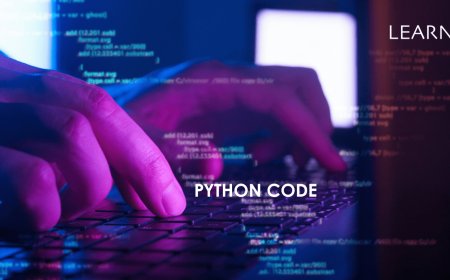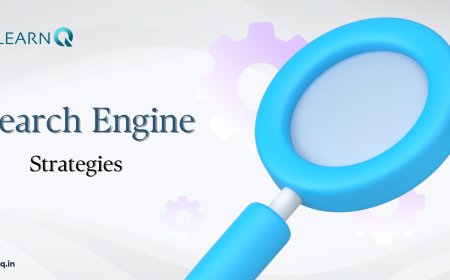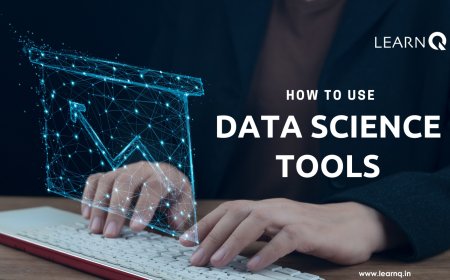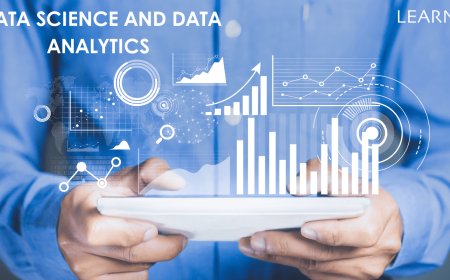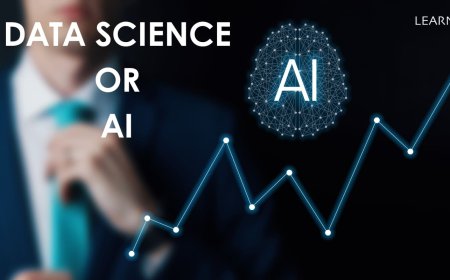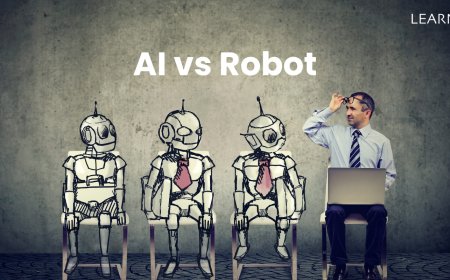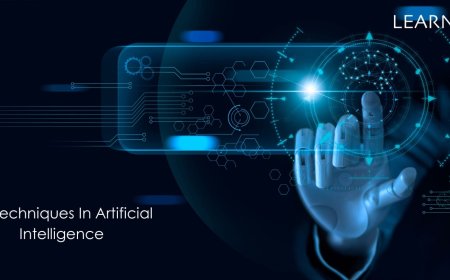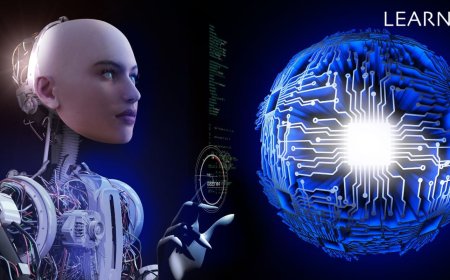10 Important Data Science Topics Every Beginner Should Learn
understand 10 important topics in Data Science for beginners. Learn key concepts to start analyzing data and building machine-learning models.

Understanding data science topics is valuable. Lots of industries need people who know about data science to make decisions. But if you're just starting, it can feel overwhelming. There are so many things to learn, like statistics, analyzing data, and using tools like Python. So, where do you start? This blog is here to help beginners get started with data science. We'll talk about ten important topics that are like building blocks for learning data science. We'll cover basic stuff like statistics and looking at data, as well as more advanced things like machine learning. We'll also talk about why it's important to show data in pictures, how programming languages like Python help with working with data, and the challenges of dealing with really big sets of data. Whether you're a student, someone who wants to switch careers to data science, or just curious about the field, these topics are a great place to start. Learning about them will give you the skills you need to handle real-world data problems and make the most of data science.
How Data Science is Growing Fast
Data science topics are booming. This means that more and more people are using data to learn things and make decisions. There are a few reasons why this is happening so quickly. First, there's a lot of data out there. Think about all the information we create every day with things like the internet, social media, and smart gadgets. It's a ton! Data scientists can look at all this information and find useful things in it. Also, computers are getting better and better. They can now handle huge amounts of data and do complicated math quickly. This is because of things like cloud computing, which lets us use powerful computers over the Internet.
Another reason is that businesses and other groups want to make smart choices based on data. They're hiring more people who know about data science topics. institutes and online courses are teaching these skills too, so lots of people are learning about it. But, there are challenges too. There aren't enough people who know about data science topics yet. Plus, we have to think about privacy and keeping data safe. And we need good rules for how to use data well. So, even though data science is growing fast, there are still things we need to figure out.
Challenges of Too Many Data Science Subjects
In data science, there are a ton of different things to learn. It can be tough to figure out where to start, whether you're new to the field or have been at it for a while. Let's check out some of the problems that come with having so many data science topics to cover:
1. Feeling Stuck: When you have so many options, it's hard to make decisions. People in data science often don't know which tools or methods to use for a specific task. This can slow things down and make it tough to get stuff done.
2. Not Knowing Enough: Data science covers a bunch of subjects, like statistics, machine learning, and data visualization. Each of these areas has lots of smaller topics, so it's hard to be an expert in everything. You might be great at one thing but not know much about others.
3. Steep Learning Curve: Learning about data science takes a lot of time and effort. With so many topics, it can feel like you're never done learning. Beginners might not know where to start or what resources to use, which can be frustrating.
4. Keeping Up with Changes: Data science is always changing, with new stuff coming out all the time. It's hard to stay up-to-date with the latest trends and tools. This means you have to keep learning new things, even if you've been doing data science for a while.
5. Limited Resources: There are tons of tutorials and courses online, but not all of them are good. Plus, you might not have enough time to learn about data science because of other things you have to do.
6. Mixing Different Subjects: Data science involves a bunch of different stuff, like math, computer science, and statistics. While this can lead to cool ideas, it also makes things more complicated. You need to be good at a lot of different things to do well in data science.
What are some important topics for beginners to learn in data science?
If you're just starting in data science, there are a few key things you'll want to focus on. Firstly, get comfortable with programming languages like Python and R. They're super important in this field. Then, it's a good idea to learn about statistics, probability, and linear algebra. These concepts form the backbone of a lot of data science techniques. You'll also want to get familiar with tools like Pandas and Matplotlib for working with and visualizing data. Moving on, you should start digging into machine learning. This includes understanding supervised and unsupervised learning methods. It might sound complicated, but it's really about using data to make predictions or find patterns. You'll learn about stuff like regression (predicting numbers), classification (sorting things into categories), clustering (finding groups in data), and dimensionality reduction (simplifying data). Another important area is data preprocessing. This is all about getting your data ready for analysis. Think of it like cleaning and organizing your room before you start doing homework. It's important for dealing with real-world data effectively.
Key Data Science Topics Every Beginner Should Master
Data Science is important nowadays. It helps us understand lots of stuff using data. If you're just starting in data science, there are some basic things you should learn first. Here are some easy-to-understand topics to focus on:
1. Understanding Numbers:
Learn about numbers and how they describe data. Things like averages, spreads, and probabilities are useful.
2. Learning to Code:
Get good at using computer languages like Python or R. They help you work with data and make cool graphs.
3. Cleaning Data:
Before you can study data, you need to make sure it's clean and organized. That means fixing mistakes and getting rid of stuff you don't need.
4. Making Data Look Pretty:
Learn how to show your findings in cool graphs and charts. It makes it easier for others to understand.
5. Starting with Machine Learning:
Machine learning is about teaching computers to learn from data. Start with basics like teaching a computer to recognize things or make predictions.
6. Getting Creative with Features:
Learn how to pick the right things in your data to study. Sometimes you need to change or add stuff to make your analysis better.
7. Checking Your Work:
Make sure your models are doing a good job. You can't just trust them blindly. There are ways to test how good they are.
8. Handling Big Data:
Sometimes, you'll work with really big sets of data. You need to know how to deal with them efficiently.
9. Trying Deep Learning:
This is about using fancy techniques, like teaching computers to think more like humans. It's great for things like recognizing images or understanding language.
10. Thinking Ethically:
Remember that data comes from real people and places. You need to be careful and respectful when you use it.
11. Learning about Different Areas:
Each field has its special things about data. It's good to know a bit about the area you're working in.
12. Keep Learning:
Data science is always changing. Make sure you keep up with new stuff by taking classes and going to events.
Getting started in data science means understanding some important topics. We've looked at 10 crucial areas, like different programming languages and machine learning tricks. Each of these things is important in the big world of data science. If beginners get good at these basics, they'll be well-prepared for whatever comes next. But it's also important to know that data science is always changing. To keep growing and doing well, you've got to keep learning about new stuff. With hard work, practice, and a love for learning, people who want to be data scientists can do great things in this field.
